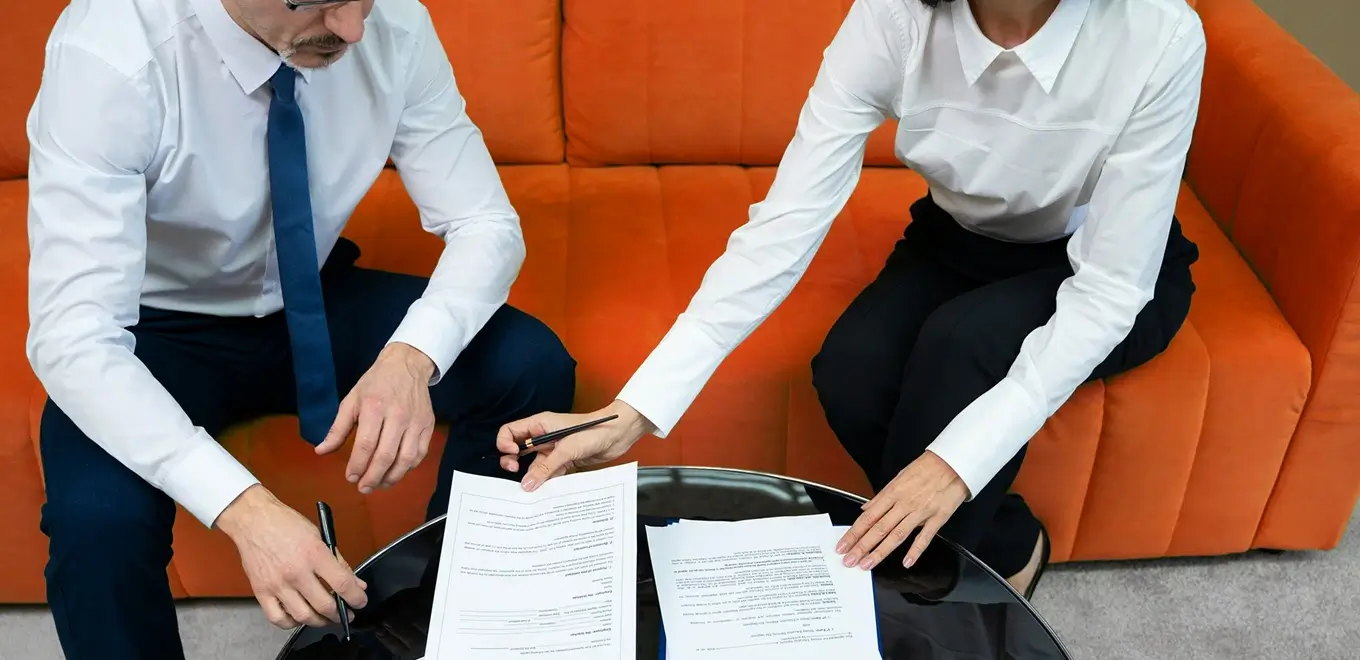Work Permit vs. Business Residence Permit: Which Is Better for Your Foreign Employees?

Hiring international talent in Poland is not just about finding the perfect candidate; it’s equally about navigating the intricacies of Polish immigration law. With Poland increasingly becoming an attractive hub for international businesses, it’s essential to make strategic decisions regarding the right employment documentation.
Selecting the optimal permit type—be it a work permit or a business residence permit—significantly influences your employee’s legal status, job satisfaction, and ultimately, your company’s operational efficiency.
Let’s delve into the nuances to help you make the most informed decision for your international team.
Understanding Work Permits in Poland
A work permit is a mandatory legal document required for non-EU citizens to work in Poland, establishing clear conditions under which employment is lawful. Poland offers various work permit categories, but the most prevalent are Type A and Type B.
- Type A Work Permit:: Ideal for individuals employed by companies registered in Poland. This permit is suitable for most standard employment situations.
- Type B Work Permit: Designed specifically for managerial roles or positions within company boards.
To qualify, the foreign employee must have a valid job offer from a Polish company, with the employer responsible for obtaining and maintaining this permit. The process involves steps such as preparing documentation, applying at local administrative offices, and in certain cases, conducting a labor market test to demonstrate that no suitable Polish candidate is available. For detailed governmental guidelines and required documentation, the Ministry of Family, Labour and Social Policy is an invaluable resource.
Consider, for example, hiring an experienced IT specialist from Ukraine. The typical scenario involves obtaining a Type A work permit, which legalizes employment and avoids potential penalties for unlawful employment.
Understanding Business Residence Permits in Poland
A business residence permit, contrastingly, is tailored for foreign nationals who aim to establish or manage their own business in Poland. This route grants greater autonomy and flexibility compared to traditional employment permits. To secure this permit, applicants must present a compelling business plan, demonstrate sufficient investment capacity, and often prove that their venture will positively impact the Polish economy.
Benefits of this permit include:
- The right to independently run a business.
- Greater flexibility in managing work-life balance.
- Potential for a longer duration contingent upon ongoing business success.
However, applicants must be prepared to provide evidence of their business’s viability and compliance with local regulations, including submitting financial forecasts and investment details. Additional guidance and details are accessible through the Polish Office for Foreigners.
Take, for instance, an entrepreneur planning to open a trendy coffee shop in Warsaw. A business residence permit provides the necessary framework to live, work, and grow this entrepreneurial venture independently.
Key Differences Between Work Permits and Business Residence Permits
The critical differences between these two permits become clearer when evaluated through specific criteria:
Purpose:
- Work Permit: Specifically for employed roles within Polish companies.
- Business Residence Permit: Intended for self-employment and entrepreneurship.
Eligibility:
- Work Permit: Requires a formal job offer and employer sponsorship.
- Business Residence Permit: Demands a detailed business plan or proof of investment.
Duration:
- Work Permit: Usually lasts 1-3 years, matching the employment contract duration.
- Business Permit: Often longer-term, depending on sustained business performance.
Employment Flexibility:
- Work Permit: Limits employment strictly to the sponsoring employer.
- Business Permit: Provides broader professional freedom, enabling entrepreneurial endeavors.
Application Responsibility:
- Work Permit: Managed primarily by the employer.
- Business Permit: Application initiated and maintained by the entrepreneur or employee.
These differences highlight that employers should carefully assess not only current but also future scenarios and growth opportunities for their workforce. For broader context about employment policies, refer to the recent changes highlighted on the European Website on Integration.
Deciding Which Permit Is Better for Your Foreign Employees
Selecting the appropriate permit should directly correlate with your business strategy and your employee’s professional ambitions:
- Choose a Work Permit if you need a stable, clearly defined employee role, such as production workers, drivers, or specialized technicians. This path simplifies administrative processes, clarifies legal expectations, and aligns with straightforward employment scenarios.
- Opt for a Business Residence Permit if your foreign employee has entrepreneurial aspirations or plans to expand their professional footprint independently. This is particularly beneficial for higher-tier employees contemplating launching ventures or diversifying business activities.
Consider a logistics firm example: For routine driver positions, a work permit is ideal, while a senior manager planning to launch a logistics consultancy would substantially benefit from the entrepreneurial freedom granted by a business residence permit.
How Novo Solution Simplifies the Permit Process
Understanding and navigating Polish immigration and employment law can be overwhelming, especially given frequent regulatory updates. At Novo Solution, our expertise lies in simplifying this complexity, providing customized solutions to your company’s unique circumstances. We meticulously manage every step—from document preparation to application submission—ensuring compliance and efficiency.
Our comprehensive service approach not only saves valuable time but also protects your business from potential legal risks. Consider our successful partnership with numerous firms who streamlined their foreign talent hiring processes thanks to our personalized assistance.
To learn more about how Novo Solution can assist you, explore our detailed service offerings on our work permit service page or contact us directly for a consultation tailored specifically to your business needs.
Frequently Asked Questions About Polish Permits
How long does obtaining a work permit typically take?
Usually between 2-3 months, subject to document accuracy and administrative workload.
Can employees switch from a work permit to a business residence permit?
Yes, however, this requires a new application and full compliance with the entrepreneurial criteria.
What are the typical costs involved in obtaining these permits?
Work permit costs involve nominal government fees, whereas a business residence permit may necessitate an initial investment reflective of your business plan.
Is it possible to change employers under an existing work permit?
Not directly. Employees must apply for a new permit aligned with the new employer’s sponsorship.


